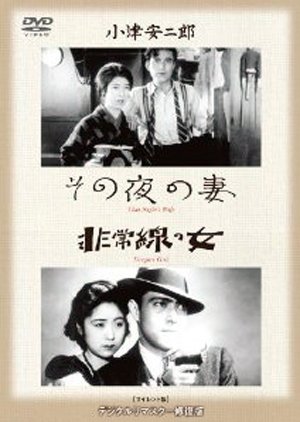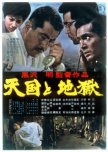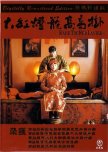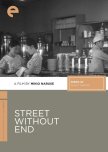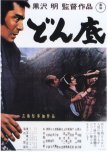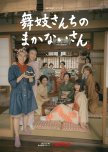
This review may contain spoilers
How far will a father go to save his child?
That Night's Wife was an early Ozu crime film that still managed to focus on a family as many of his later films would. The three main characters all found themselves facing moral dilemmas and acting out of character, at least briefly, all for the sake of sick child.Shuji is a father driven to desperation one night because his child is dangerously sick and he needs money for her treatment. He robs an office and is at once chased by the police. Thinking he has found safety in a taxi, unbeknownst to Shuji, it turns out the driver is an undercover police officer named Detective Kagawa. Once home, Shuji explains what he's done to his wife, Mayumi, who is not pleased. Kagawa comes knocking at the door, not taking no for an answer. Shuji helplessly hides behind a curtain, as Kagawa begins to search the small apartment. Mayumi pulls the gun used in the robbery on Kagawa and tells him that no one is going anywhere until her daughter is better. During an uncomfortable night, the detective sees their poverty and utter devotion to their daughter. The next morning, the doctor arrives and declares little Michiko on the mend. Kagawa feigns sleep and Shuji seems to be making an escape, but when Kagawa opens the door, the sober headed father has returned. Shuji wants to serve his time as he should so that he can be a father his daughter would be proud of.
Ozu wasn't afraid to be critical of the societal structure that left many without and parents faced with dire decisions to safeguard their children. As other authors would ask, should a person go to jail for stealing bread to feed his child? What lengths would a person go to, to save his child when society deemed her unworthy of saving? Shuji, the devoted, loving father, acted out of character by robbing people at gun point. Mayumi, the traditional, gentle wife, acted out of character by pulling a gun and basically holding Kagawa hostage. Kagawa, the hard-boiled by the book cop, acted out of character by agreeing to stay until Michiko improved and by pretending to be asleep in order for Shuji to escape. In the end, Kagawa walked arm in arm with Shuji to the police station giving the viewer hope that the father's sentence would be a compassionate one. Wh
The apartment where much of the story took place was very un-Ozu-like. Instead of the precisely ordered and decorated spaces he was known for, this apartment was cluttered with American movie posters hanging on the walls, paint cans piled up, laundry looped over a line in the living room, and everything pretty much askew. There were some classic noir shots, silhouettes against a glass door, close-ups of a gun, and shadowy, heart pounding chases through darkened streets with only the white police gloves or shiny sabers breaking the inky night. Instead of just the head and shoulders shown of the characters, often he showed the full length of the bodies as they moved naturally about. As opposed to the later slow orderly action of characters, Shuji hid and ran precariously through the streets, even crouching down in a phone booth to call the doctor, nervous and sweating. I found it honest and refreshing.
Something else I found refreshing was that this time it was the father who did something amoral to protect his child. In much of these 1930's films, women paid a terrible price by committing acts of prostitution to save their children. Mayumi was now alone and vulnerable, with few options for making money, hopefully, this character found her way to survive until her husband returned home. The film may not have looked like an Ozu film, but even in a crime noir, the heart of the story was the relationship of a husband and wife and their love for their daughter. Each of the characters had to weigh their moral decisions against the weight of an unsympathetic society, surprising themselves at times, but ultimately remaining true to their honorable selves. Not a must-see silent film, but an entertaining one that reflected Ozu's view of his world.
6/29/23
Was this review helpful to you?

